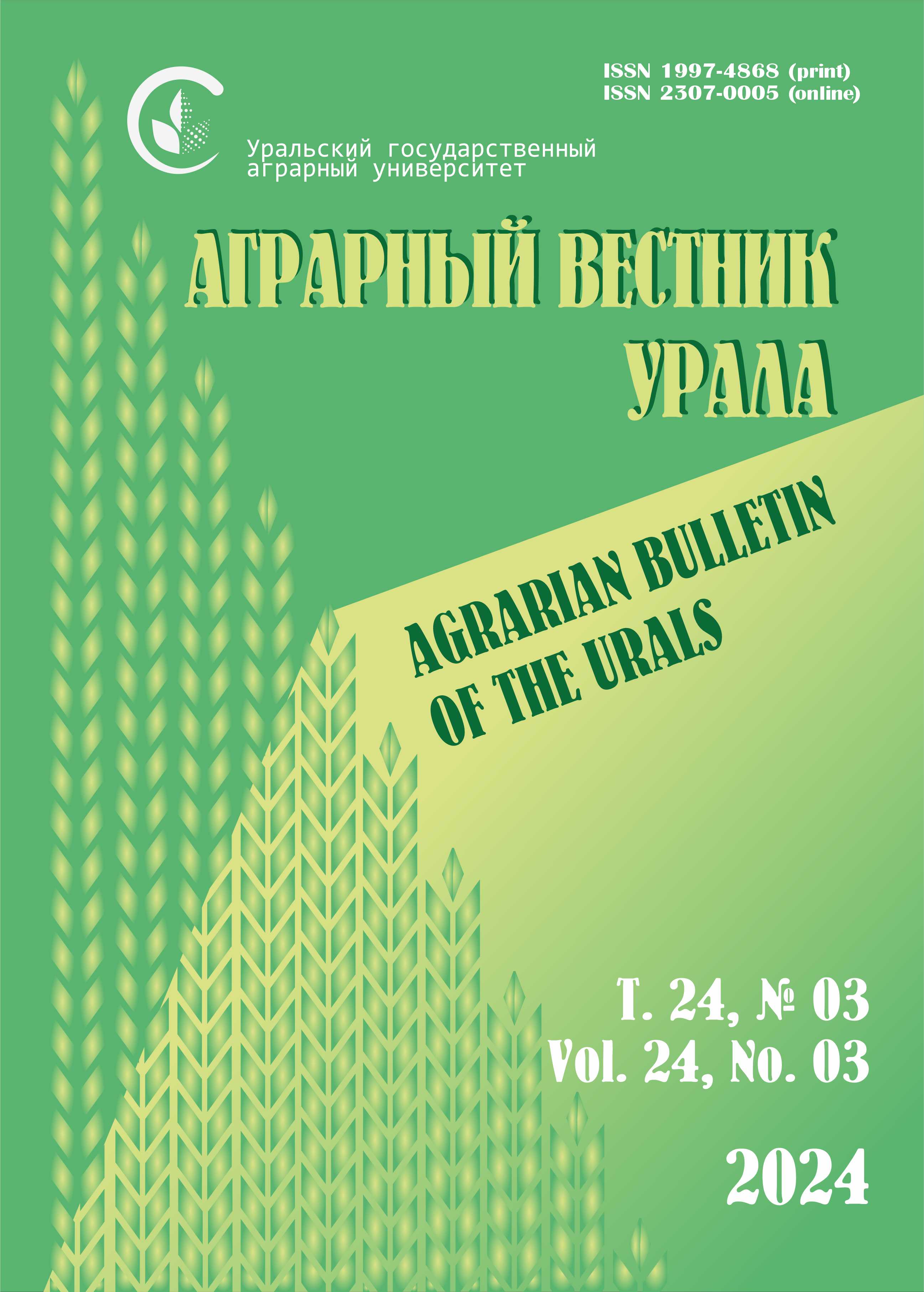Authors:
Yu. O. Lyashchuk,
A. Yu. Ovchinnikov,
K. A. Ivanishchev,
A. V. Shchur
Federal Scientific Agroengineering Center VIM, Moscow, Russia
Ryazan State Agrotechnological University named after P. A. Kostychev, Ryazan, Russia
Belarusian-Russian University, Mogilev, Republic of Belarus
E-mail: Этот адрес электронной почты защищён от спам-ботов. У вас должен быть включен JavaScript для просмотра.
Abstract. Currently, much attention is paid to the monitoring of new biopathogens, which are formed as a result of targeted genetic manipulations resulting from human activity, and natural variability. The sensitivity of mutated organisms to various disinfectants can differ significantly from the sensitivity of the original varieties. Thus, the assessment of alimentary-caused biological risk factors in terms of resistance to the effects of chemical disinfectants is an important area of scientific research. The aim of the work is to assess the nutritionally determined biological risk factors in terms of resistance to the effects of chemical disinfectants. The research methods were general scientific methods of cognition, as well as the analysis of alimentary-caused biological risk factors in terms of resistance to chemical disinfectants, which was carried out by us, based on the standardized methodology for the epidemiological assessment of Dubyansky-Maletskaya. The analysis covered a three-year period from 2019 to 2021, and was carried out by us on the materials of the Ryazan region provided by the Center for Hygiene and Epidemiology of the Ryazan Region and the Main Directorate of Veterinary Medicine of the Ryazan Region. The scientific novelty of the study lies in identifying the features of the manifestation of the sensitivity of alimentaryconditioned biological risk factors to various groups of chemical disinfectants. Results. Our study allowed us to draw the following conclusions: the resistance of alimentary-caused biological risk factors to chemical disinfectants is largely due to their etiological characteristics; among the group of pathogens with very low resistance to chemical disinfectants, the main share is occupied by risk factors of bacterial etiology; among the group of pathogens with medium resistance to chemical disinfectants, the main share is occupied by risk factors of viral etiology; among the group of pathogens with high resistance to chemical disinfectants, the main share is occupied by risk factors of helminthic etiology; a group of pathogens with a very high resistance to chemical disinfectants mainly consists of risk factors of helminthic etiology and spore-forming anaerobic bacteria.
Keywords: biopathogens; anthroponoses; zooanthroponoses; food quality and safety; chemical disinfection.
For citation: Lyashchuk Yu. O., Ivanishchev K. A., Shchur A. V. Assessment of alimentary-caused biological risk factors according to the parameters of resistance to the effects of chemical disinfectants // Agrarian Bulletin of the Urals. 2022. No. 12 (227). Pp. 54‒61. DOI: 10.32417/1997-4868-2022-227-12-54-61.
Download the full text of the article











